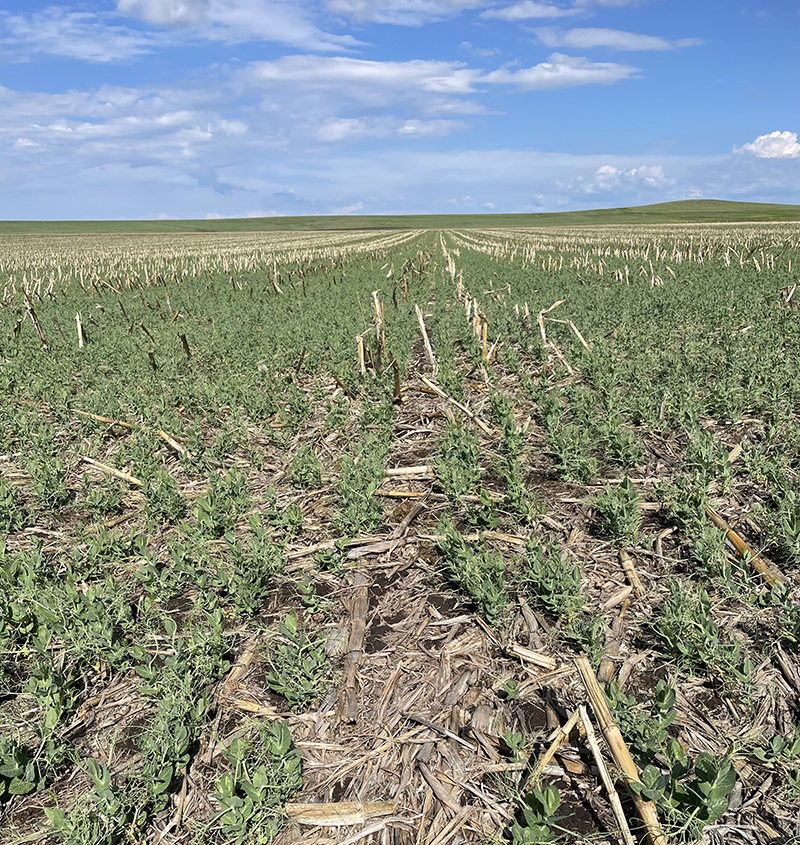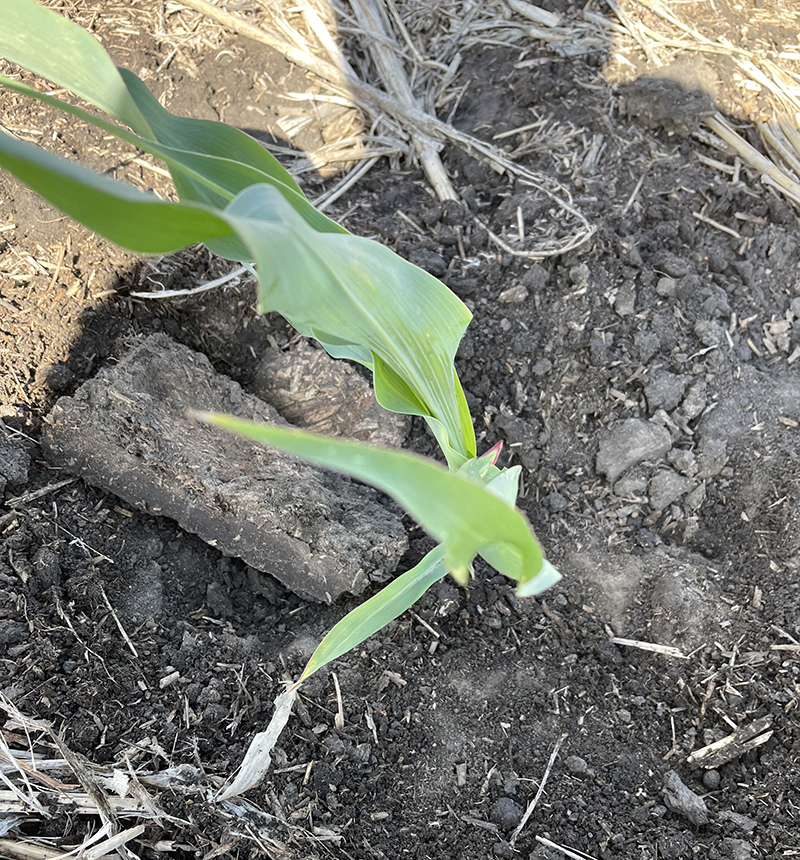by Ethan Begle
Is there one right way to do everything or are there multiple ways to arrive at the same result? Listening to opinions that something worked excellent for one farm, while the next one down the road had a bad experience explains a lot. The value of on-farm testing helps you, the user, to understand whether it fits your system and mental understanding of the best way to achieve success. We all realize that if every company claiming their product saves time or increases yield were true, we would have already doubled yields and spent less time repairing. At the end of the day, the only way to know if it works with your goals is to use it on your soil.

Most companies are trying to attract a nationwide customer base, which means appealing to all conditions instead of specific ones like no-till for example. This is when testing concepts for yourself can help sort through the sales points that are supposed to be successful on your farm. With mapping programs today it’s easy to mark and track plot locations and filter through the data after harvest. Knowing if there was a yield increase will tell you if ultimately, it will pay for itself with additional revenue. But there are more points to consider when you measure whether the change was the right move. Did it add some complexity or the need for more people, as this would be a major change to the farm? Major changes can be sorted out by finding other farms’ experiences that have already made that change and understanding how it worked for them. Again, the point of this article however is that no matter how many opinions you solicit, there’s no guarantee it will suit your operation as planned.
There are lots of examples for why comparing over your acres helps your farm the most. Seed and fertilizer should always have test plots on your farm to help future decision-making. When prices are lower, and expenses are critiqued closely, you can be confident in cutting back rates because you’ve tested the outcome already. On the other side of the equation, because of testing yourself, you are already running an efficient operation and are consistently profitable no matter what prices or weather dictate each season.
Exapta gets reports from our customers tracking our products on half the planter. They don’t always show a yield increase but they might help in another area such as not having to replace as often. Precision Planting studies Keeton seed firmers every year and they have yet to ever show a negative return from using them. A great example of on-farm testing is a farm in Nebraska reported they ran Keeton’s on half the 16-row planter covering 2,000 acres and tracking it with Field View, they saw a 3-bushel difference at harvest. A Keeton tail covering that number of acres will need changing every 3 seasons. This would amount to a cost of $6 a year, equal to 1.5 bushel of corn or ½ bushel of soybeans to make the Keeton pay. This farm didn’t even use Mojo Wires on their Keeton’s. Please view our past newsletters and future ones to see how important it is to keep pressure on the Keeton using the Mojo Wire and the return on investment from this farm.
Thompson closing wheels are tested every year, and while they don’t always increase yield, they perform a specific function to eliminate yield decreases. Spike closing wheels are used to crumble the sidewall back together to eliminate sidewall compaction created by down pressure on the gauge wheels. In no-till soils where there is structure and roots, it takes a lot more pressure on the smooth rubber wheel to force the furrow closed. The more clay in that soil the stickier it is and the harder it gets when it dries out. You want to avoid putting a lot of pressure to force all the air pockets out with the closing wheels. If you have firmed the seed into the bottom of the furrow with the Keeton + Mojo wire, then the only job left for the closing wheels is to crumble and fully cover the furrow. Exapta gets calls asking for the weight of the Thompson wheel (9.8 lbs) because they are looking for a heavy cast wheel to force that soil closed. This puzzles me as our spike wheel needs less weight and pressure to close the furrow. In fact, we suggest a medium-pressure spring that’s half the down pressure of OEM because the Thompson wheel spoke is narrow (1/4”) enough to penetrate the soil easily. Big heavy wheels wear out your closing pivots faster and pack the furrow too much. Leave the soil unpacked and allow the seedling to emerge easily giving it a greater chance of increasing yield at harvest.

There are many more examples of why you should do on-farm testing and determine what works best in your specific operation. We each have different goals and measures of success. Understanding that a yield increase boosts the bottom line is important, but it’s equally crucial to recognize that success involves more than just yield. Looking at the opportunity cost a new change provides is often not considered. An increase in emergence doesn’t always increase yield, but it gives the “opportunity” to increase yield with more viable plants per acre. You would then look further at how to change fertility and plant stress during the growing season to see where yield is lost. A final thought around this is not getting too focused on one single point, realizing that it’s all the operations together that provide the final return on investment. If you don’t see an increase right away but it logically makes sense, then allow more years of testing before dismissing the change.
Do you have on-farm testing using Exapta products that you’d like to discuss? Call us at 785-820-8000 and ask to speak with Ethan in Technical Service. We’re always happy to hear from our customers.
